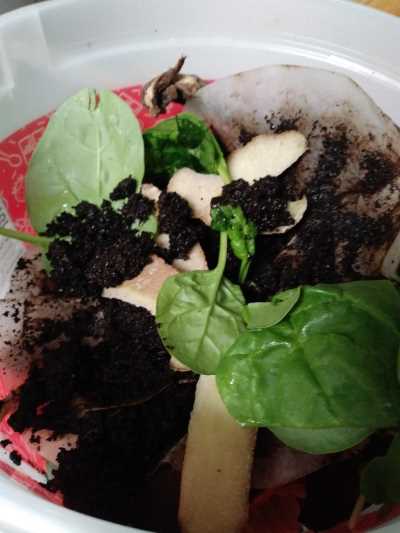Coffee Grounds, the Good, the Bad, and the Truth
I like to read journal articles in search of the truth of what I call “garden lore”. There are many “facts” floating around that people have passed along so many times, everyone thinks they must be true.
However, just because a thing has been repeated hundreds of times does not mean it is a fact! (Think of all the “urban legends” floating around in cyberspace!)
Take coffee grounds for instance. Like a lot of other people, I add them to my compost. I decided to do a bit of research into the nutrient value and potential bad effects. I figured if too much coffee had bad results for me, it might have a bad effect on my plants.
Here’s what I found by reading research articles published in peer reviewed journals:
1. Coffee grounds are high in nitrogen. That’s a plus unless your soil is already high in nitrogen. You did test your soil, didn’t you?
2. Coffee grounds are quite acidic. That’s a plus for southwestern gardeners because the soil is alkaline. Unfortunately, it’s not a plus for my stomach!
3. Coffee grounds increase water holding capacity of soil. Another plus.
4. Caffiene is a phytotoxin. In other words, it is toxic to plants. That’s definitely a minus.
Coffee plants and cacao trees (chocolate) are antagonistic toward other plants that try to grow near them. A study published in Urban Forestry & Urban Greening tested the effect of coffee grounds on garden plants and found that growth was stunted. To read the article, click here: Applying spent coffee grounds directly to urban agriculture soils greatly reduces plant growth.
5. Coffee grounds have been shown to kill earthworms. They apparently can’t handle the caffeine. That’s another minus.
An interesting study, Evaluation of three composting systems for the management of spent coffee grounds appeared in Bioresource Technology. Researchers found that, “Earthworm growth and survival (15–80%) was reduced in all the treatments”. That’s not good news!
6. Coffee grounds have antibacterial properties. Soil needs bacteria to break down organic matter, so another minus. The reference is, Comparison of antioxidant, antimicrobial activities and chemical profiles of three coffee (Coffea arabica L.) pulp aqueous extracts in Integrative Medicine Research.
Composting coffee grounds does not remove the negative effects.
I haven’t given up my coffee habit and I still compost coffee grounds. I have switched to decaf. I haven’t found any research indicating that decaf has negative effects on plants or soil organisms, yet. I may have to conduct my own experiments! But first, I need anther cup of coffee.
Please comment to share your experiences with using coffee grounds in the garden directly or composted. Have you added them to worm bins? Have you conducted your own experiments by keeping all factors the same except for adding coffee grounds to the soil for some plants and not others? Are you using regular or decaffinated grounds?
Happy gardening!

